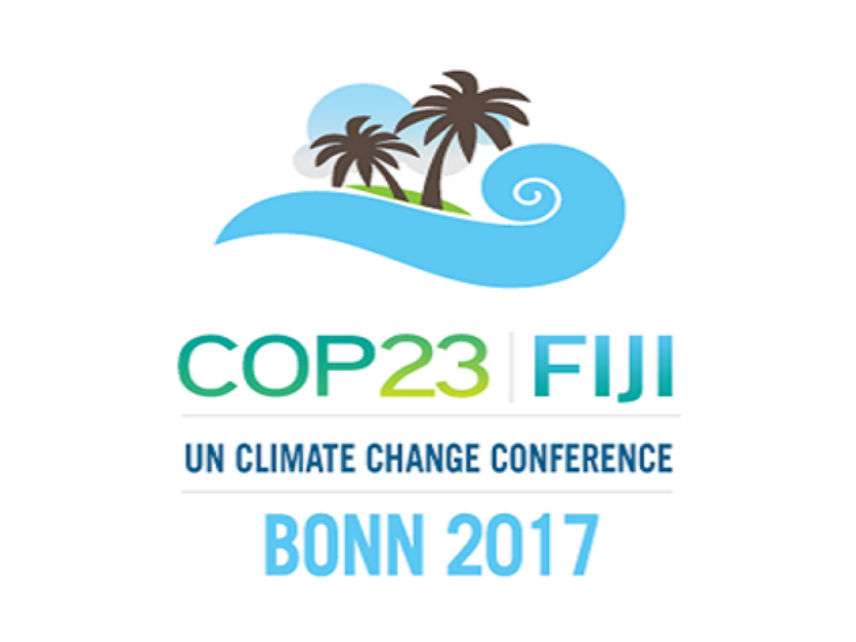23rd U.N. Climate Change Conference Opens in Bonn
The Trump administration sends low-level bureaucrats as delegates to the climate negotiations.

The 23rd Conference of the Parties to the United Nations Framework Convention on Climate Change opened on Monday. Although the island nation of Fiji is presiding over the meeting, the conference itself is being held in Bonn, Germany. Some 25,000 participants, including delegates from 190 countries, activists, and journalists, are expected to attend.
It is also the second meeting after the Paris Agreement on climate change came into effect. Although President Donald Trump announced in June that the United States will be withdrawing from the Paris Agreement, under the accord it takes four years to complete the formal withdrawal process. So until 2020, the U.S. still officially has a seat at the climate negotiations table. The Trump administration is not sending high-level officials to Bonn; the small U.S. delegation will instead be led by career diplomat Thomas Shannon.
As has become traditional, various think tanks and activist groups have issued reports arguing that we face a dire climate situation. The World Meteorological Organization released a statement declaring that 2017 is on track to be the second or third warmest year in the instrumental temperature record. The University of Alabama in Huntsville reported that last month was the warmest October in the 39-year satellite global temperature record.
The medical journal The Lancet published a report warning that man-made climate change is already affecting human health around the globe. The study reported that millions more people are exposed to prolonged heat waves, that rising temperatures have reduced outdoor labor productivity by 3 to 5 percent in some regions, and that some mosquito-borne illnesses are spreading.
In the United States, the U.S. Climate Change Assessment program published last week its Climate Science Special Report, which declared it "extremely likely" that the accumulation of greenhouse gases in the atmosphere (chiefly carbon dioxide from burning fossil fuels) is the "dominant cause of the observed warming since the mid-20th century." That report also noted that the "annual average temperature over the contiguous United States has increased by 1.8°F (1.0°C) for the period 1901–2016."
The main business of the conference will be negotiations over the standards for how to measure and compare each country's greenhouse gas emissions over time. The benchmarks will enable each country to monitor others' efforts to reduce their emissions in line with their nationally determined contribution pledges under the Paris Agreement. For example, the Obama administration pledged that the U.S. would cut its greenhouse gas emissions by 26–28 percent below its 2005 level in 2025.
In addition, the Bonn climate negotiators will be haggling over what happens after 2020, when the Paris Agreement parties are supposed to significantly deepen their greenhouse gas reduction targets. By some estimates, humanity may have to reduce its carbon dioxide emissions to zero by 2065 to keep average global temperatures from rising by more than 2 degrees Celsius by the end of this century.
As always, money is a hugely contentious issue. Under the Paris Agreement, richer countries are supposed to supply $100 billion a year in climate aid to the poorer countries by 2020. Those funds are meant to help the poorer places shift from fossil fuels toward low-carbon technologies and to help them adapt to the consequences of ongoing man-made climate change. The promise of massive amounts of climate aid is essentially a bribe to poor countries to get them to sign on to the new climate change agreement. Sadly, climate aid is likely to be as ineffective in helping poor countries as conventional foreign aid has been.
Over the next two weeks, I will be keeping an eye out for any interesting developments at the conference. Stay tuned.


Show Comments (59)